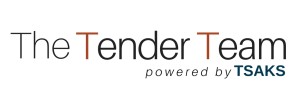For many first time tenderers, an environmental management plan demonstrates to any selection panel/procurement team that your business, company or organisation is willing to consider how the local environment plays a role in your direct operations.
Environmental management plans are often asked for in a tender and the Tender Team helps all our clients by either reviewing their current plan from an outsider’s perspective or even supplying one of our own.
Our free template for an environmental management plan for your next tender
Our team often create environmental management plans and environmental management systems for clients who are tendering for government work. We have free templates which we provide clients who would like to create their own responses.
If you are asking yourself – what is an environmental plan and you have a tender due in two or three weeks, we are the team who can assist. Our team of environmental management plan consultants and Environmental Management System consultants can create a plan that reflects the relevant ISO requirements and arrange compliance and auditing.
Will a good environmental management plan help me win the tender?
Great question. Sometimes, if the tender has a large focus on environmental and sustainability issues, then yes. Other times no – we have completed many local councils, local government, state government and federal government tenders where your environmental plan will not win you the tender. There are many other strategies for writing winning tenders and securing contracts which you can read about here.
However, not having a correct environmental management plan can lose you the tender. That’s because it’s often a requirement / tick a box which you must have in place. Our team of tender writers have quick and easy to use templates we can provide you to ensure you comply.
How do you write an environmental management plan or environmental management system?
For any worthwhile plan, the following sections are usually included to cover all aspects of a tenderer’s policy, vision and procedures to help fulfil their environmental objectives.
Environmental Policy
A company’s environmental policy is usually short and mostly sets out the goals, objectives and timelines for completion. The policy itself should be written in a simple, easy-to-read format for accessibility and clarity on the overall environmental vision of the company.
A policy usually encompasses goals and objectives relating to the following areas;
- Water – Conversation efforts and other objectives for a company or business to prevent themselves from making a negative impact on nearby bodies of water (dependent on the business’s operations).
- Energy – Reduction of electricity and gas usage in a business’s premises, equipment and other property. This applies to most businesses in Australia.
- Paper – Transition to paperless offices, conserving trees and preventing the destruction of natural habitats and their ecosystems.
- Culture – General statements in regards to introducing a greater degree of environmental awareness throughout a business or organisation. Acknowledging the effects of a business’s output or operations is usually the first step for achieving environmental goals and objectives.
Environmental Targets
The Tender Team recognises that while an environmental policy is only a summary or vision statement of any of our tenderer’s environmental management plans, focusing on environmental targets brings greater detail to what exactly needs to be done to achieve the goal of conservation or preservation of the environment.
Environmental targets vary depending on the industry that a tenderer works in. For engineering and construction fields, tenderers will wish to have highly developed environmental targets gathered from previous research that specifies exactly what level of electricity or water usage they will abide for the upcoming term.
For other industries such as IT and finance, the notion of paperless offices and the minimisation of electricity usage is somewhat paramount. Paperless offices are an important prospect for the future as paper printing solutions are reduced with the rise of more transient forms of technology such as tablets and low weight laptops. Electricity powers any office and it is when a large number of industry players in a particular field gather together and agree to reduce electricity usage that environmental issues can be rectified on a large scale. While these industries don’t actively affect the environment through physical tasks such as labour, deforestation, etc, office environments operate off outputs from the natural environment. In doing so, acknowledgement and awareness go a long way towards establishing practical environmental targets that can be abided by.
Action Plan
Taking that step from planning to doing is often a big task for any tenderer in terms of properly following an environmental management plan. While environmental targets specifically detail the goals and objectives required for fulfillment, the Action Plan itself documents how a tenderer will go about using their skills, experience and equipment to be environmentally conscious.
An Action Plan lays out procedures for how to achieve each goal and objective of your environmental management plan.
Sample objectives and methods to achieve them include;
- Paperless Offices – Reduction of printing paper purchased and advocacy for use of tablets and other lightweight computers to store and share information.
- Reduction of Carbon Emissions – Minimised use of vehicles and eventual transition to electric-powered, over gas-powered, transportation when feasible.
Monitoring and Review
The final aspect of an Environmental Management Plan concerns monitoring and review of the goals, objectives and procedures set out to achieve them from the Action Plan. In this section, companies need to define another series of processes to accurately capture whether the plan itself is anywhere closer to achieving their goal than it was from its inception.
A monitoring schedule is a quick and easy way for companies to review their environmental progress, summarising key aspects of their plan and whether or not benchmarks have been met or hopefully exceeded.
In order for this section of the environmental management plan to be used effectively, The Tender Team recommends that a senior management staff member or better yet, the business owner, be identified as responsible for this section entirely.
Call The Tender Team now on 0410 448 770 to speak with our expert tender consultants about how our environmental management plan can give your tender response that added push against the competition. We provide a round-the-clock service, at great rates.







